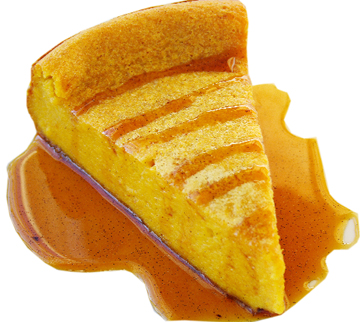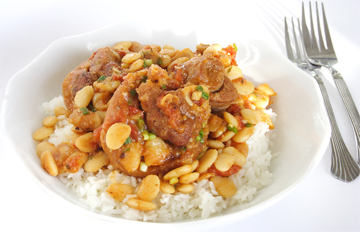Hi Everyone,
What is your answer when someone asks you to describe our cuisine or asks you what type of cuisine we have? And I’m talking here about the Caribbean as a whole and not about any particular country or island. Spicy is the word that comes to mind often, but when we say spicy I think that it is interpreted solely to mean hot – heat from the scotch bonnet peppers our region is known for.
A friend, also taster now living abroad, has been struggling to find a word and ways of describing our cuisine to her new friends not familiar with Caribbean food (except of course the stereotypical food portrayed by the foreign media in various forms). So far, flavourful is the word she has come up with. And then just this past week, another friend who had sent me some of her mother’s original blend of masala to cook meat curry asked me if I found the masala spicy. I responded by asking what kind of spicy she meant – spicy from heat or spicy from the flavour of the spices used in the masala. I’m still waiting for her answer.

This got me to thinking that as a food writer and someone whose passion is representing the cuisine of this region, I need to have a clear explanation of our cuisine while at the same time dispelling the myths. I decided to start by looking at the three main words that are often used to describe our food – spicy, hot and flavourful.
Spicy – this word has various shades of meanings. Hot, meaning the production of a burning sensation at the taste nerves is the most common interpretation of spicy. However, I think when we use this word in the Caribbean we are really using spicy as an aromatic descriptor. In other words, we are talking about the odour of sweet spices such as cloves, cinnamon and all spice berries (famously known as pimentos in Jamaica’s Jerk seasoning). Often when you hear people in the Caribbean giving recipes for desserts, teas and drinks, they’ll talk about adding “spices” and those spices are the sweet-smelling spices.

Hot – there’s no need to guess what this means. We are referring here to heat from pepper. Heat from the sensation that burns the tongue and the palate. You know, the kind of heat that some of us chilli-heads really go for where the sinuses are cleared, the eyes watering, and breathing becomes an art – you inhale through the mouth and exhale through the nose.
Flavourful – like spicy, this is one of those words with various shades of meaning. Flavour can refer to the taste experience when something is taken into the mouth; it can mean the quality produced by the sensation of taste; it is used to describe the overall impression of aroma and body of a food or drink or a sensation – sweet, salty, sour, bitter as perceived by the tongue. The descriptor I like most is that flavour is the sensory impression of food. It just says it all.
What I’ve found is that with each word – spicy, hot, flavour – there was varying degrees of overlapping and that the word that came close to describing our food in an all-encompassing kind of way is flavourful. Think about it, if we define flavour as being the sensory impression of food, then both types of spicy – hot or aromatic – also fit within this description. My friend, who I was telling you about earlier, certainly relies on the word flavourful when she’s describing Caribbean food. She told me she once said to a friend, “Caribbean food is about flavour, it makes your taste buds wuk up”… but then she had to explain what “wuk up” meant, so I’m not sure if it was the most effective way to describe the food.
Given that the Caribbean is a place, where people from many parts of the world – Africa, Asia, the Americas and Europe dwell, our cuisine is so diverse that a descriptor with one meaning cannot be ascribed to our food for we are everything. We are hot, we are spicy, we are sour, we are sweet, we are salty, we are tasty, we are tangy, we are sharp and even though we are mild at times, one thing we are not is bland.
These days identity is important and I don’t mean important in a way that sets us apart, but rather important in a way that helps us to understand who we are as individuals, as individual nations and as a people. Forgive the cliché, but as the world shrinks and we shuttle back and forth across this globe, especially those of us from small nation-states, it is important that we clearly identify and represent ourselves. And one of the main ways we can do that is through our food – at home, work and play. Far too long we’ve let other people tell our stories, far too long we’ve let other people tell what our food is, far too long we’ve not worked hard enough to explain our cuisine and if we’re not careful, it won’t be far too long before many of our dishes and food be wiped out of our collective memories.
Cynthia
tasteslikehome@gmail.com
www.tasteslikehome.org





